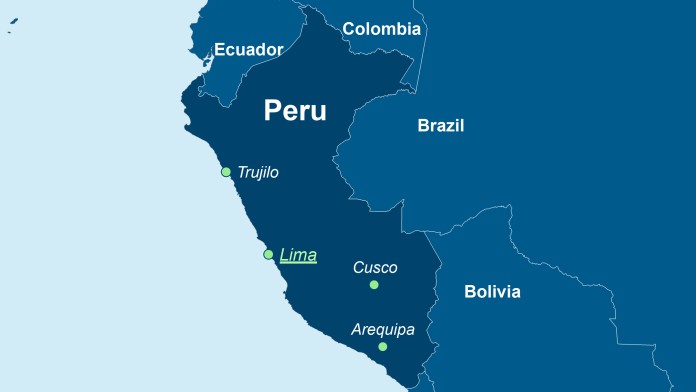
Peru is the third largest country in South America in terms of area and is one of the region's emerging economies. In recent years, it has distinguished itself through continuous economic growth as well as considerable development progress and notable successes in the fight against poverty. Only about one fifth of the 33 million inhabitants are now considered poor, compared to almost half in 2006. Nevertheless, social inequality and development disparities between urban and rural areas remain high. The Corona pandemic hit the country particularly hard with a high death rate and an economic decline of around 11% in the pandemic year 2020, but an economic recovery began as early as 2021.
KfW Development Bank is supporting Peru on behalf of the German Federal Government primarily in its efforts to protect the climate - especially in the context of sustainable urban development - and to protect biodiversity.
KfW Office Lima
Director KfW Office: Simon Erhard
Av. Prolongación Arenales 801
Lima 18 Miraflores
Perú
Phone: +51 12 22 22 33
Fax: +51 12 22 02 42